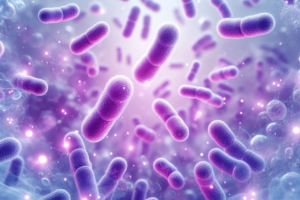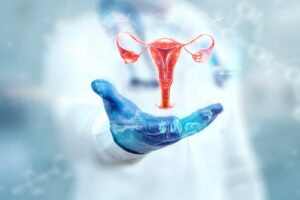As we know, nutrition affects the critical biological pathways in the reproduction process, and to understand the role of nutraceutical products or an innovative approach in the treatment of female infertility, we should understand the present changing lifestyle that affects fertility.1
Natural fertility is changing worldwide due to various factors, such as environmental exposure, nutritional style, population density, ethnicity, and social constraints. Considering the very important factor that is nutrition or food, it is very well established that our health is impacted or influenced by the food we consume and the nutritional value associated with it. The major impact of poor dietary habits on overall health and fertility issues in particular is often overlooked. Unbalanced diets and unhealthy eating habits interfere a lot with both male and female reproductive functions.2
The role of a nutritional diet in managing infertility is not considered. In addition to medical treatment, a holistic approach such as lifestyle modifications and adequate nutritional support will have beneficial effects on developing sperm and oocytes. This will help in treating and improving infertility in both men and women. Female infertility is a prevalent social and medical condition among women of reproductive age worldwide.
The prevalence of infertility is a global health problem affecting 20-30% of the female population of reproductive age. The World Health Organization (WHO) defines infertility as a medical condition characterized by the failure to conceive after 12 months of unprotected sexual intercourse.
Following are the factors affecting female infertility3
- Premature ovarian insufficiency
- Polycystic ovary syndrome
- Endometriosis
- Uterine fibroids
- Endometrial polyps
Fertility enhancing lifestyle factors for women:5
- Lose weight: Chances of conceiving drops with a BMI (body-mass-index) of less than 35. On the other hand, your chance of having a stillbirth is 2-fold higher and your chance of prematurity (<32 weeks) increases by 50% with a BMI greater than 35.
- Stop smoking
- Limit caffeine intake: 1 cup of tea and coffee during the time trying to conceive
- No alcohol: No consumption of alcohol during the treatment period
- Healthy diet: Diet full of fruits and vegetables, less red meat, and no trans-fat (fried foods, doughnuts etc.)
Following are the list of vitamins and minerals that may aid in female fertility4
- Folic acid, also known as vitamin B9, is needed for the development of DNA production and red blood cells. It plays a vital role in cell division. It has been found that adequate folate levels are important for maturation, oocyte quality, fertilization and implantation. Females who consume folic acid have fewer issues with conceiving faster, ovulation, and may also increase their chances of live birth.
- Vitamin B12, also known as cobalamin, also helps in the proper functioning of the brain and the nervous system and helps in forming red blood cells and producing the genetic components RNA and DNA of the eggs as well as the sperm. Deficiency of vitamin B12 can also lead to anaemia, infertility, and higher chances of foetal loss and could contribute to abnormal ovulation, disruption in the cell division process, impairment of the egg, and implantation issues.
- Omega-3 fatty acids are found in fish, vegetable oils, leafy vegetables, and nuts. The use of fish oil has been shown to improve egg quality and female fertility. They are the most important part of the cell membrane and help prevent heart disease. In one study, women consuming omega-3 supplements were 1.5 times more likely to conceive compared with those not taking any omega-3 supplements.
- CoQ10 is an antioxidant, which is a potential antioxidant and is found to increase fertility in women’s, especially for women over 40 years old. It can optimise egg quality, improve fertility rates for women with PCOS, and thicken the uterine linings. A study of infertile women undergoing ART (assisted reproductive technology) indicates that CoQ10 supplementation increases clinical pregnancy rates.
- Vitamin D is also called the sunshine vitamin. Its role is to keep the bones healthy and strong by helping the body absorb calcium. Vitamin D deficiency has been found to lead to reduced fertility, and higher vitamin D levels were associated with IVF success. Vitamins and micronutrients have a very positive impact on fertility.
Product offered:
BLM-Fertiaid
A non-hormonal therapy that nourishes the endocrine system also helps stimulate ovulation. It is safe to use and has no risk of neural tube defects in the foetus. Help in regulating the normal menstrual cycle.
Composition:
Each sachet contain:
Vitex– 200 mg
Maca– 500 mg
Myoinositol – 500 mg
D-Chiro – 13.8 mg
L-methyl folate – 400 mcg
Vitamin D3 – 600 IU
Dosage form: Sachet
Recommended dosage: 1-2 sachets per day
Clinical data:6
- Study: A patented blend consisting of a combination of vitex agnus-castus extract, MACA and active folate, a nutritional supplement for improving fertility in women.
- Objectives: To investigate the improvements on the fertility of couples following treatment with a daily tablet of a blend alone or with a gel capsule of vitamin, minerals, oligo-elements plus DHA and EPA omega 3 fatty acids.
- Subjects: 189 womens were enrolled in the study. Group A: 103 patients who received a daily tablet of blend and Group B: 86 patients received a daily tablet of blend and gel capsule.
- Results: The sucessful pregnancy rate of 37% and the number of women with ovulation increased from 10% to 42.9% by the end of the study. During six month study period there were no side effects between patients of the two groups.
- Conclusion: The supplement may be used by women trying to conceive. The patented blend, consisting of a combination of Vitex agnus, Maca and active folate works by regulating the menstrual cycle, stimulates ovulation and increases the likelihood of getting pregnant.
The bottom line
Fertility either in male or female is affected by multiple factors and one important factor is lifestyle and may be helped by implementing specific changes to diet, supplement regimens, and more. Many studies have shown that both male and female fertility is also affected by many micronutrients deficiencies and that it can be supported through supplementation. There is limited scientific evidence supporting the efficacy of natural remedies in completely removing female infertility, and it is crucial for individuals facing fertility challenges to consult with medical professionals for personalized guidance and appropriate interventions.
Consumption of nutraceutical products can help to support egg health, stimulate ovulation and improve chances of a women to conceive. There are fewer risk factors associated with the consumption of nutraceutical products. The supplement offered are safe and effective for the treatment of infertility in females. BLM-Fertiaid is the best nutraceutical product used for the treatment of infertility in women’s.
References:
- https://oasisindia.in/blog/influence-of-nutrition-on-female-fertility/
- Cwikel J, Gidron Y, Sheiner E. Psychological interactions with infertility among women. European Journal of Obstetrics & Gynecology and Reproductive Biology. 2004 Dec 1;117(2):126-31.
- Vander Borght M, Wyns C. Fertility and infertility: Definition and epidemiology. Clinical biochemistry. 2018 Dec 1;62:2-10.
- https://xenithivf.com/a-guide-to-female-fertility-supplements-vitamins-for-female-fertility%EF%BF%BC/
- https://fertilityanswers.com/female-infertility/lifestyle-factors-and-fertility/
- Antoine E, Chirila S, Teodorescu C. A patented blend consisting of a combination of Vitex agnus-castus extract, Lepidium meyenii (Maca) extract and active folate, a nutritional supplement for improving fertility in women. Mædica. 2019 Sep;14(3):274.
- Han Q, Chen ZJ, Du Y. Dietary supplementation for female infertility: Recent advances in the nutritional therapy for premature ovarian insufficiency. Front Microbiol. 2022 Nov 17;13:1001209. doi: 10.3389/fmicb.2022.1001209. PMID: 36466679; PMCID: PMC9712792.







